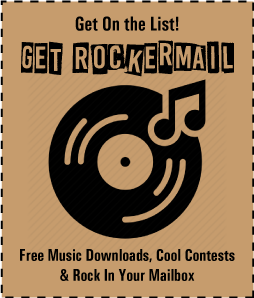Bill See first came into the public eye in the late 80’s as the charismatic frontman for LA band Divine Weeks. In his new memoir, “33 Days: Touring In A Van. Sleeping On Floors. Chasing A Dream” See chronicles his band’s first North American tour in a beat up Ford Econoline van in the summer of 1987.
As a musician who has been there and done that, Rocker asked him to give his insights on touring then and now.
I got turned off to mega-stardom after waiting outside the L.A. Sports Arena in 1980 for a glimpse of The Who after their show. Limos with tinted windows tore through the crush of the crowd, and we were all left there with the smell of burned tire treads. I was 15 and a Who fanatic. Of course I over-personalized it, but it was a watershed moment.
Within three years I’d started my own band, Divine Weeks, inspired by D.I.Y. bands like Black Flag, The Minutemen and Husker Du who preached success doesn’t come to you, you go to it. Eschew major labels. Put out your own records. Book your own tours. You don’t stay in hotels, you beg from the stage for a floor to sleep on. No roadies. No high-powered promoters. Create a community.
Black Flag pretty much invented the D.I.Y. tour model out of pure necessity. Their tireless work ethic and relentless touring schedule is the template every 80’s college rock band followed. The D.I.Y. bands showed that being indie was a righteous cause — fighting the good fight against the bloated, arrogant and self-important hierarchy of major labels and radio programmers that kept good music off the air and relegated to garages. I was completely inspired by the idea of following the breadcrumbs these bands were leaving on the highway. There was a certain nobility in taking our music to the people; one by one, if necessary. It was like this mystical idea of going into the hinterlands and searching for converts.
In the 80’s, indie rock (or “college rock” as it was called then) was truly alternative and underground. It was like a secret society, and trying to explain it to anyone who only knew rock and roll by what was on MTV, or in regular rotation on commercial radio, was alienating.
When Divine Weeks booked its first tour in the summer of 1987, we found launching it took a lot of time, effort and money. Back then, there was no email and no MP3 song attachments to send to nightclub booking agents. It was cassettes sent through snail mail, and many, many expensive follow-up long distance phone calls. And that was just booking the tour. We had to wonder, what was it really going to be like out there? Nowadays, you just have to Google “touring in a van tips” and you can receive nearly 8,000,000 web pages to sift through for help, but back in the day all you had was word of mouth. We contacted as many touring bands as we could, and drilled them for what to expect, gathering whatever tips and survival tools they had. We used every one of those tricks we learned, picked up a few of our own, and we passed it on to as many bands as we could. Twenty-five years later, some stuff has changed, but a lot of these tricks are still being used today.
Touring in the 80’s had its own unique set of challenges. While nowadays cell phones and email provide bands with cheap easy ways to keep in touch and sort out problems from the road, in the 80’s phone calls were expensive. One tip we got was buying a bunch of stolen calling cards so we could call home from the road. When one card ran out of minutes, we went to the next, and when we went through all the calling cards, we’d pool all our change and then carefully plan out what to say, because we literally had only minutes to talk.
Not everything was harder in the 80’s though, while bands looking for tour sponsorship now would likely have to submit a lot of paperwork and proposals to get any kind of tour support, we just walked into Guitar Center and told them we were going on this big monster tour and promised to play exclusively on their gear, and that same day we left with a load of guitar strings, some cymbals, a microphone and patch cords all for free. Of course what we told them was total B.S., but it worked.
We then took a crash course from a certain SST band on how to disconnect our rented van’s odometer to save on mileage charges. The rental company offered 500 free miles and so when we got to about the 600 mile mark, we disconnected the odometer and drove for free the rest of the way. Of course we learned later that what we’d done was a Federal crime!
As Mike Watt (Minutemen / fIREHOSE) once said, “If you ain’t playin’, you’re payin.” Days off on tour meant spending money we didn’t have, so we’d try and pick up gigs along the way – anywhere, anytime. We busked outside marketplaces and would offer to play at record stores, radio stations and parties for whatever we could earn by passing around a hat. We piggybacked on other bands we’d meet, opened for them and promised they could open for us when they came to L.A. Pay it forward, we were taught.




